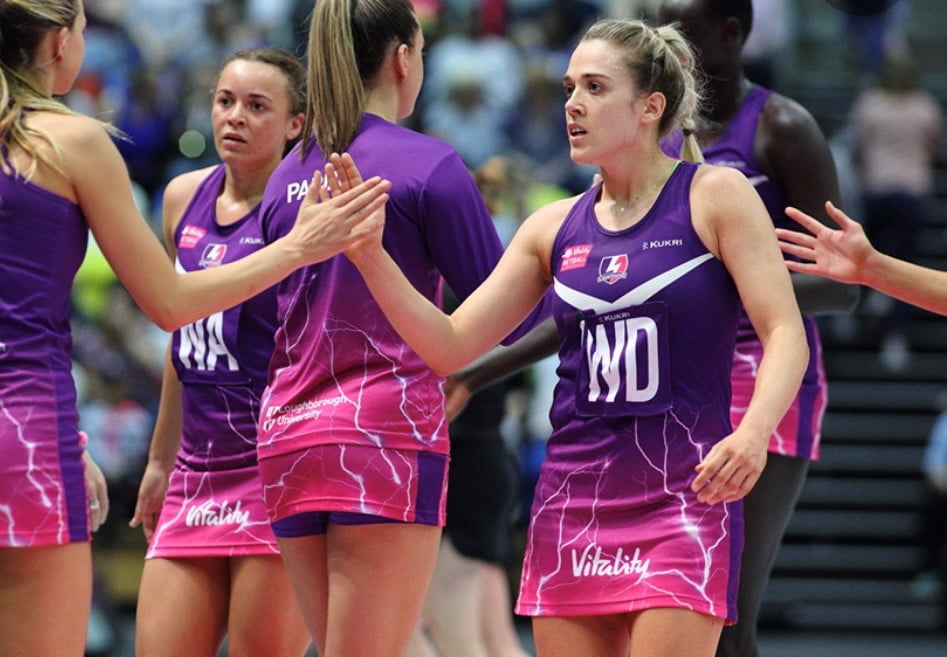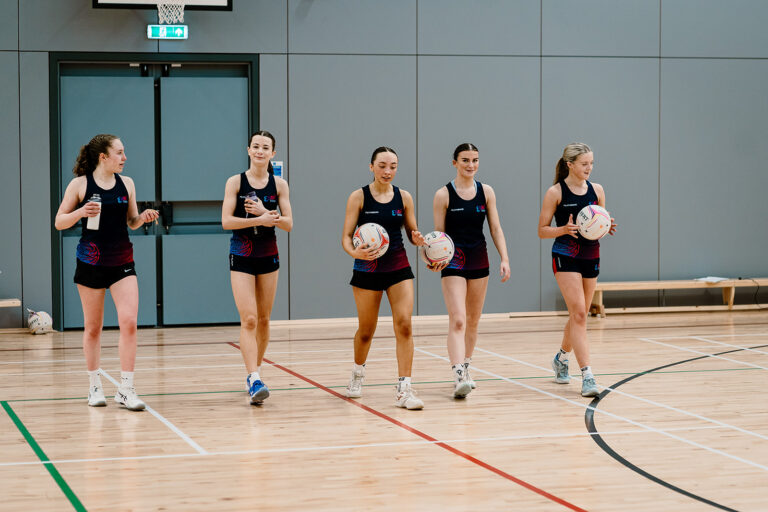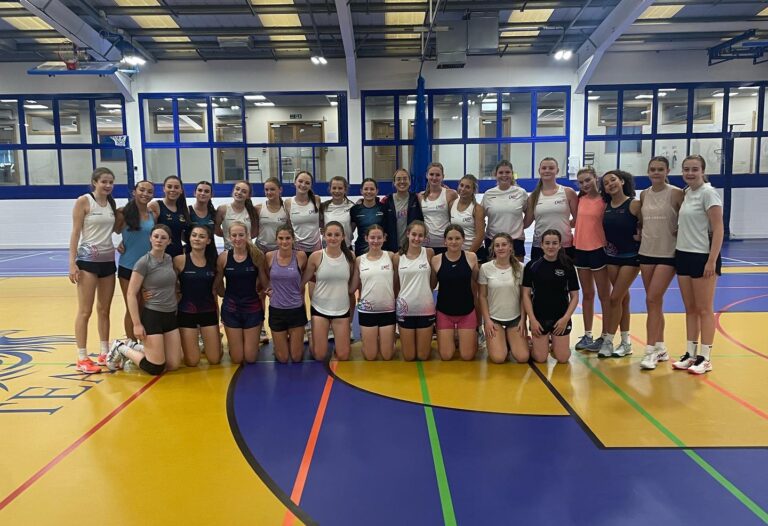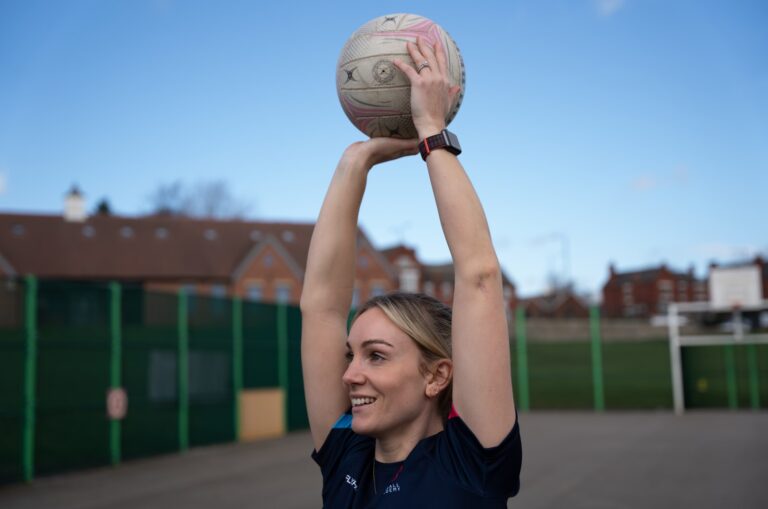Goal Setting in Sport
When we asked Elite Netball Academy ambassador Natalie Panagarry to write a piece for us on goal setting in sport, she leapt at the chance. Goal setting is important, it helps trigger new behaviours, and keep you focused when the going gets tough. In this blog, Natalie looks at why goal setting in sport is important
Goal setting in sport
Happy New Year Elite Netball Academy! I hope you all had an amazing Christmas and New Year with friends and family plus some well-deserved rest and recovery.
Speaking of the New Year it’s always a good time to start focusing on the year and goal setting. So why is goal setting in sport important?
As an athlete, it’s really important to set goals as it can massively optimise performance on and off the court. It can help us focus on areas to develop, improve and give us a sense of direction.

Goal setting in sport and psychology
Setting yourself goals is something really personal, it’s not coming from your coach, teacher or parent it’s coming from you and what your focuses are. I find it can give me a sense of confidence in what I believe I can do and achieve in the future. It might be that you keep these goals to yourself or you might tell your inner circle what you are trying to achieve.
Setting goals can help athletes trigger new behaviours. Training weeks can be very monotonous, we train at the same times each week on the same days. I know from personal experiences that finding balance and motivation is always something you have to keep working on during training.
The importance of goal setting
Having goals helps me have training focuses and keeps me motivated so I’m fully engaged in sessions and not just going through the motions. Here are a few ideas you can use to set your goals:
- Write your goals down
- Use a vision or goal board, something you’ll see daily to remind you what you’re working for
- Listen to positive podcasts or read goal-setting books to get some ideas and help keep you on track.
I think it is important to say here that having a variety of time frames for your goals will help, split them out into short and long term goals.
Here are some examples of short and long-term goals:
Set small goals for training days, for example, practice only feeding shoulder passes into shooters.
Goals for the week at training might be to work on communication skills or to try and be more vocal and positive towards others. Or maybe in your gym sessions try to hit a new personal best.
In terms of long-term goals, these can range from four weeks to six months in length and could be to improve aerobic fitness and be selected for a certain tournament.
It is also worth mentioning here that there are four types of goals:
Process goals – these goals are specific actions and are 100% controlled by you. A small training day goal would be an example of a process goal.
Performance goals – are generally based on setting a personal standard for an aspect of your life that you are in control of. Working on communication skills in training would be an example of a performance goal.
Outcome goals – are closely supported by process and performance goals and they focus on the endpoint of an event. For example, in relation to my long-term goal of being selected for a certain tournament, you might have followed your process goals and hit all your performance goals to make it to the team but the team selectors might not choose you. Thus the specific outcome goal you were targeting is out of your control. In these instances, it’s important to stay positive and not to let one knockdown set you back. Reset the outcome goal and figure out the process and performance-specific goals to get there.
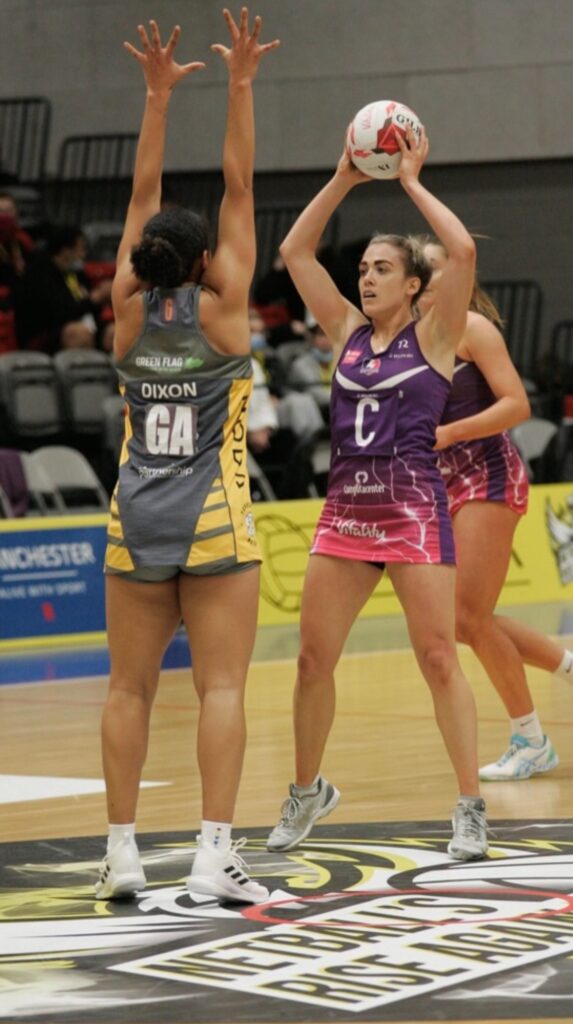
Why having personal goals is important
Make sure you don’t just have netball-related goals. Having personal goals is also massively important. I think the key to an athlete’s success is having balance. When you have a balance you keep your passion alive for your sport, a desire to keep improving and pushing yourself in training.
For example, your personal goals could be trying to take part in another one of your favourite hobbies/seeing your friends more/reading a book/listening to more music. Do whatever makes you happy away from training and keep holding yourself accountable to make time for these things as well.
At this point, it’s also important to mention not to put too much pressure on these goals. Like I’ve said they are a great way to keep your focus, trigger good behaviours and help with motivation. However, don’t be so hard on yourself if you don’t reach your targets and goals straight away or in fact ever. As we’ve already touched on, sometimes the outcome of your goals is out of your control.
Lots of things can happen or change from when you set your goals. If you don’t hit them reflect on why, and take time to think if you need to change anything to reach them or maybe you are ready for a new goal and a new path.
I hope this helps you on your netball journey but just remember to have fun, play with a smile and keep a balance in your life
Nat xx

